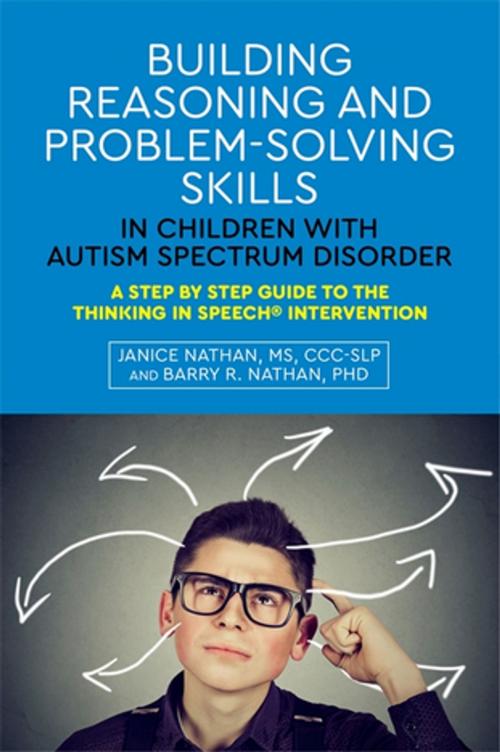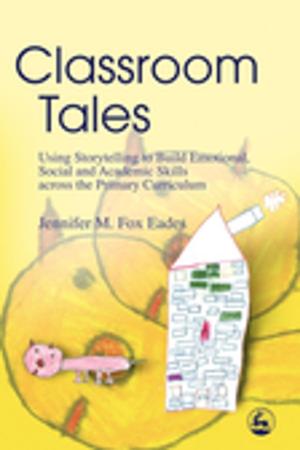Building Reasoning and Problem-Solving Skills in Children with Autism Spectrum Disorder
A Step by Step Guide to the Thinking In Speech® Intervention
Nonfiction, Reference & Language, Education & Teaching, Special Education, Learning Disabled| Author: | Janice Nathan | ISBN: | 9781784503901 |
| Publisher: | Jessica Kingsley Publishers | Publication: | May 21, 2018 |
| Imprint: | Jessica Kingsley Publishers | Language: | English |
| Author: | Janice Nathan |
| ISBN: | 9781784503901 |
| Publisher: | Jessica Kingsley Publishers |
| Publication: | May 21, 2018 |
| Imprint: | Jessica Kingsley Publishers |
| Language: | English |
Teaching children with Autism Spectrum Disorder (ASD) to develop the 'inner voice' needed to solve problems, this book's innovative approach will help children reach logical and appropriate solutions to everyday problems.
This book shows students and professionals how to formally teach key skills for reasoning and problem-solving that aren't usually explicitly taught, such as planning, pausing and reflecting and increasing emotional regulation. Focusing on the 'inner voice' - the dialogue that goes on inside our heads during every day routines - the authors explain how to help children with ASD solve problems independently.
The book also shows how children can learn to cope with feelings of stress when confronted with difficult situations, whether getting stuck on homework, making mistakes, choosing options, following procedures that are perceived to be arbitrary, or everyday social situations. Examples of implementing this new approach in different situations are given to show the many ways of teaching these cognitive skills to children with autism.
Teaching children with Autism Spectrum Disorder (ASD) to develop the 'inner voice' needed to solve problems, this book's innovative approach will help children reach logical and appropriate solutions to everyday problems.
This book shows students and professionals how to formally teach key skills for reasoning and problem-solving that aren't usually explicitly taught, such as planning, pausing and reflecting and increasing emotional regulation. Focusing on the 'inner voice' - the dialogue that goes on inside our heads during every day routines - the authors explain how to help children with ASD solve problems independently.
The book also shows how children can learn to cope with feelings of stress when confronted with difficult situations, whether getting stuck on homework, making mistakes, choosing options, following procedures that are perceived to be arbitrary, or everyday social situations. Examples of implementing this new approach in different situations are given to show the many ways of teaching these cognitive skills to children with autism.















